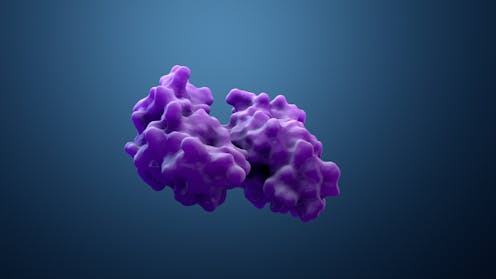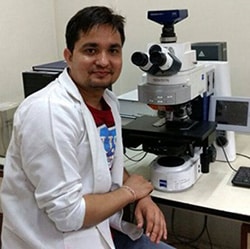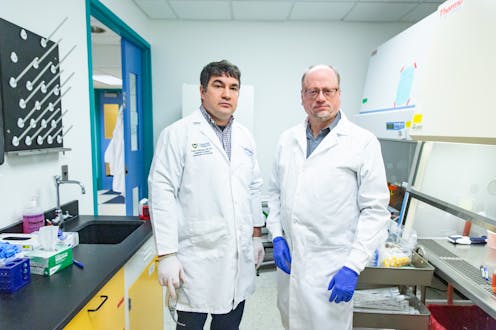For science to have a meaningful impact on a group of people, new information needs to spread between trusted members of that community.
Author: bioelectric
How much does scientific progress cost? Without government dollars for research infrastructure, breakthroughs become improbable Science + Tech – The Conversation
It costs money to maintain the various facilities, utilities and personnel that allow scientists to conduct research in the first place. Without federal support, institutions are left scrambling.
Enzymes are the engines of life − machine learning tools could help scientists design new ones to tackle disease and climate change Science + Tech – The Conversation
Enzymes significantly speed up the chemical reactions that keep you alive. Researchers are using AI to create new ones to tackle modern challenges.
Making Biliary Tract Cancer Treatment More Precise American Association for Cancer Research (AACR)
Researchers are examining ways to make treatments more targeted to each type of biliary tract cancer or to each patient.
The post Making Biliary Tract Cancer Treatment More Precise appeared first on American Association for Cancer Research (AACR).
How Does the AACR GSITA Program Benefit Young Cancer Researchers? American Association for Cancer Research (AACR)
Four past recipients of the Global Scholar-in-Training Award (GSITA) share how their experience at the AACR Annual Meeting impacted their careers.
The post How Does the AACR GSITA Program Benefit Young Cancer Researchers? appeared first on American Association for Cancer Research (AACR).
Nutrition advice is rife with misinformation − a medical education specialist explains how to tell valid health information from pseudoscience Health – The Conversation
It’s easy to get caught up in the promise of quick health fixes, but they are generally too good to be true.
Engineering the social: Students in this course use systems thinking to help solve human rights, disease and homelessness Science + Tech – The Conversation
Control systems keep your house warm and your car’s speed constant, but they could also help address societal problems.
Medical research depends on government money – even a day’s delay in the intricate funding process throws science off-kilter Science + Tech – The Conversation
A member of a grant review panel explains the ins and outs of applying for research funding – and the consequences of when the process suddenly stops.
Skin phantoms help researchers improve wearable devices without people wearing them Science + Tech – The Conversation
Just 2 layers of materials commonly used in biomedical labs can mimic the electrical properties of human skin.
Fake papers are contaminating the world’s scientific literature, fueling a corrupt industry and slowing legitimate lifesaving medical research Science + Tech – The Conversation
‘Paper mills’ are contaminating the world’s scholarly output with fake papers that hinder research. Lifesaving biomedical fields are especially hard hit.









